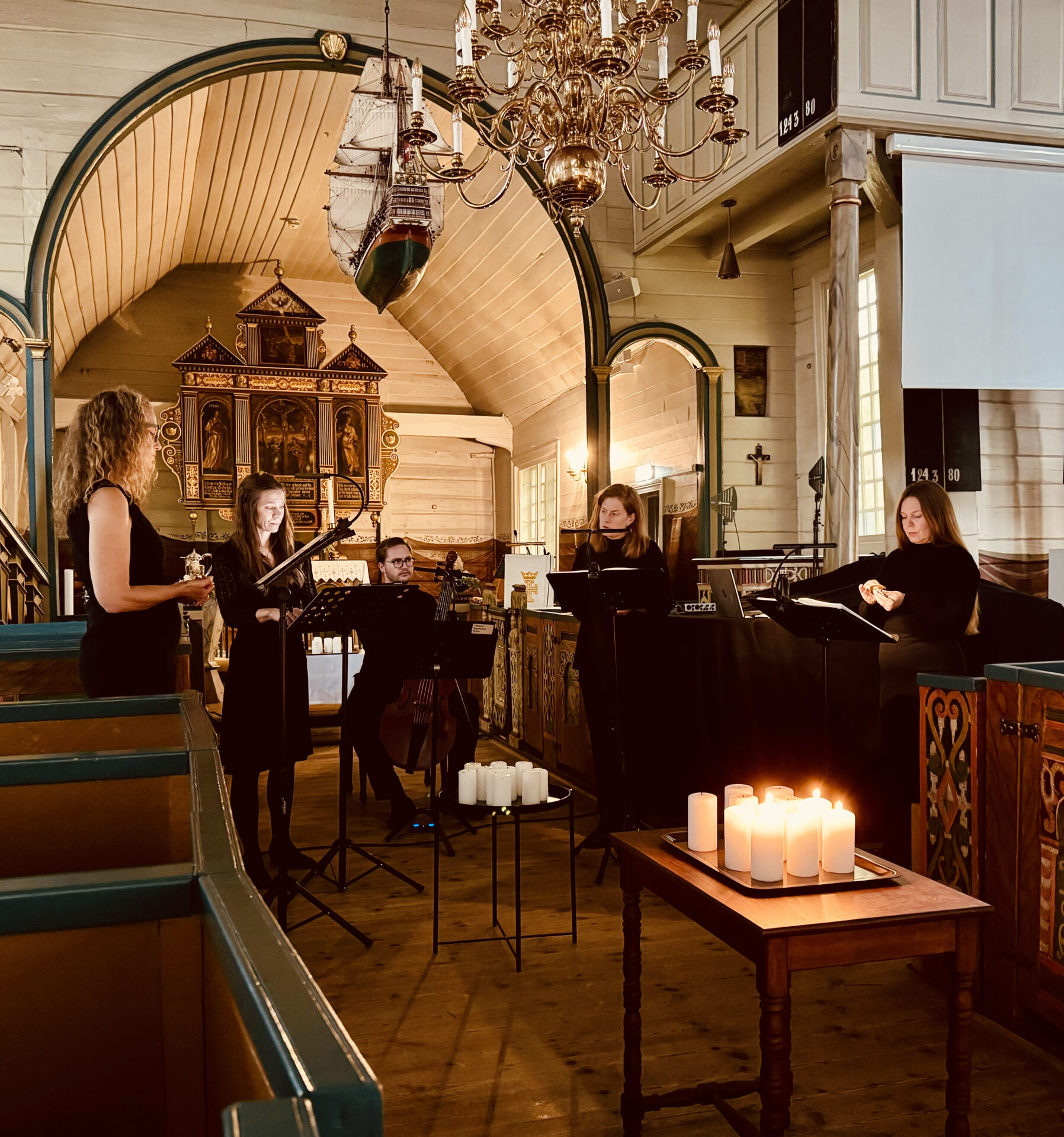The work takes its cue from François Couperins Leçons de Ténebrès for voices and continuo, written in 1713. The genre Leçons de ténèbres dates back to the renaissance and the Holy Week, when music was performed in the flicker of candlelight; after each ‘leçon’ a light was extinguished, until the darkness, ‘tenebrae’, on good friday, after the last candle.
The new work relates to this tradition, and will be performed in an acoustic setting together with baroque pieces in the same genre. The work is developed in close collaboration with the distinct voices of Song Circus, and Lislevands gamba will play an important role both as counterpoint and as bass fundament to the four female voices. In keeping with the idea of light as dramaturgical element, we will work with the light and space of performance, to create anintegral experience for the listener.
The texts of the baroque Leçons de Ténebrès – translating as ‘Lessons in/from the dark’ – are from the biblical book of Jermiah, lamenting the destruction of Jerusalem about 500 BC. This material will be juxtaposed in the work with new texts telling stories from Israel today.
Performed by Song Circus (Ingeborg Dalheim, Liv Runesdatter, Silje Aker Johnsen, Signe Irene Stangborli Time (voices)) and André Lislevand (viola da gamba)

Listen to excerpts and hear Eivind speak on NRK Musikklivet: https://radio.nrk.no/serie/musikklivet/sesong/202403/MKMU75001124
Aksel Tollali (critic, Scenekunst.no):
Buene’s Leçons conveys a profound suffering in a strikingly sober manner. There is immense political explosive power and relevance in the texts that are recited and set to music.
Maren Ørstavik (Aftenposten):
«The cultural community speaks loudly about Gaza. Parts of the conflict are easy to take a stand on through benefit concerts and calls to action—such as the number of dead children and the obstruction of humanitarian aid. The humanitarian catastrophe cannot be ignored, regardless of one’s views on the basis of the conflict. Going deeper with artistic means is challenging. Composer Eivind Buene does this with respect, historical consideration, and beauty.”
Eystein Sandvik (critic, NRK):
«It’s a work that engages me and touches me on different levels and in various ways. It has a distinctive musical expression, a clear concept, and, not least, a clear message.» «It’s a work that has strong connections to both history and the present.»
«It is inevitably a completely different context here, which the composer could not foresee when he concluded his work before this date, but I believe that the conditions for the massive warfare from Israel that we are witnessing now stem from a dehumanization of the civilian population affected, and this dehumanization is clearly expressed in these testimonies from Israeli soldiers. It is frightening and horrific to listen to, even though the testimonies unfortunately pale in comparison to the reality currently unfolding in Gaza, which, in turn, makes me perceive the power in this, after all, rather serene music, the setting of the Lamentations, as even greater.»
